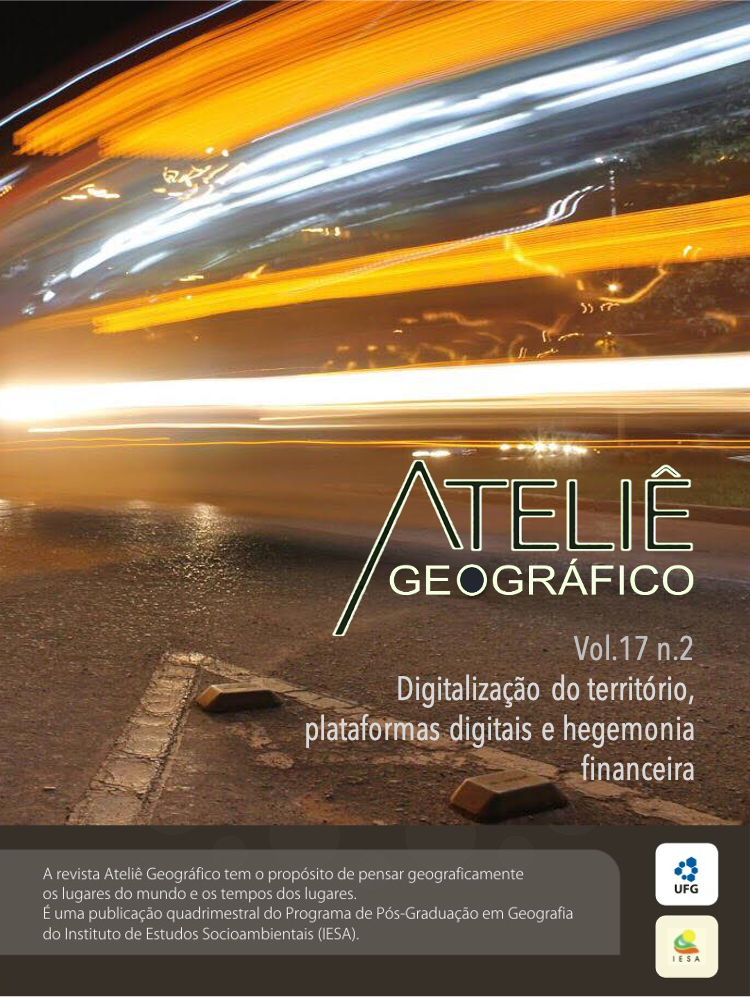Territorial transformationsat Center-southregionof Santa Maria, Rio Grande do Sul’surban zone: analysisfrom Hélvio Basso’s Avenue (1966-2021)
DOI:
https://doi.org/10.5216/ag.v17i2.73298Abstract
The main purpose of this research consisted on analyze the territorial transformations in the portion center-south of Santa Maria, Rio Grande do Sul (RS)’s urban area using, as empirical object of analysis, Hélvio Basso Avenue in the period between 1966 and 2021. As methodological procedures, making use of “ground truthing”, aerial photographs of the 66s, 75s, 83s, 87s, 92s and 2021, as well as satellite images from Google Earth Pro of 2009, 2013, 2014, 2017 and 2021, in addition to urban legislation applied on Santa Maria’s territory, most precisely the Director Plannings’ zoning. The territorial transformations are occasioned by a number of factors and social agents that, overlapping and on different moments, set the territory in the center-south portion of urban area becoming Hélvio Basso Avenue the main reference in terms of technique density in current times. Is possible to detach the State in the Municipal, State and Federal spheres, as well as the private companies, i. e., the business use of territory as main agent evolved in the development of these processes of territorial transformations in center-south portion of Santa Maria’s urban area.
Keywords: Used Territory. Globalization. Geoprocessing. Bright Space. Milton Santos.
Downloads
Downloads
Published
How to Cite
Issue
Section
License
Autores que publicam nesta revista concordam com os seguintes termos:- Autores mantém os direitos autorais e concedem à revista o direito de primeira publicação, com o trabalho simultaneamente licenciado sob a Licença Creative Commons Attribution que permite o compartilhamento do trabalho com reconhecimento da autoria e publicação inicial nesta revista.
- Os autores não serão remunerados pela publicação de trabalhos na Revista Ateliê Geográfico. Além disso, os conteúdos publicados são de inteira e exclusiva responsabilidade de seus autores, ainda que reservado aos editores o direito de proceder a ajustes textuais e de adequação às normas da publicação.
- Autores têm permissão e são estimulados a divulgar seu trabalho online (ex.: em repositórios institucionais ou na sua página pessoal), já que isso pode gerar alterações produtivas, bem como aumentar o impacto e a citação do trabalho publicado (Veja O Efeito do Acesso Livre).


